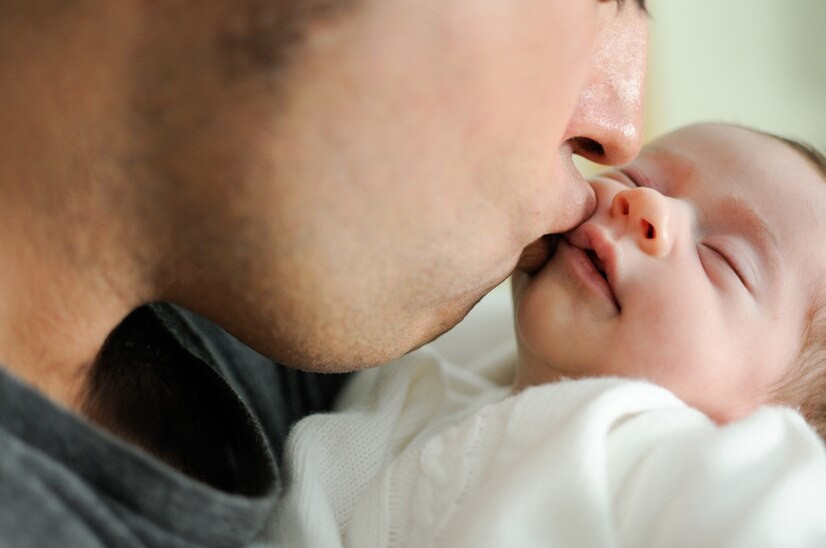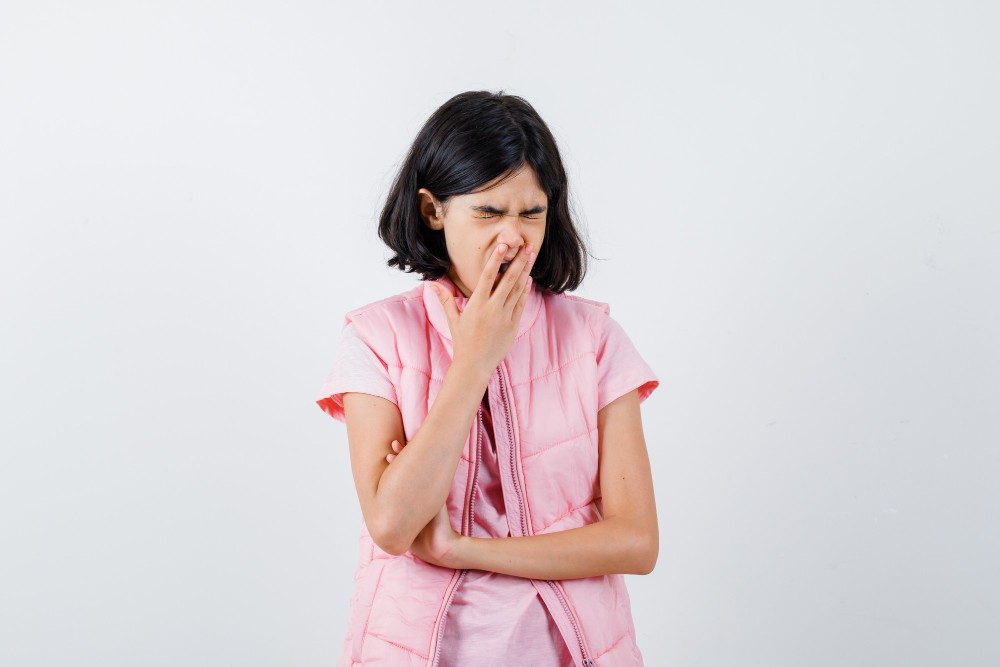Pipi bayi dan balita memang sangat menggemaskan dan selalu menggoda untuk dicium. Namun, Anda perlu menyadari bahwa mencium bayi atau balita sangat berisiko menyebabkan mereka tertular infeksi atau mengalami reaksi tertentu.
Berikut adalah penyakit yang bisa dialami anak karena orang lain mencium bayi atau balita.
Infeksi respiratory syncytial virus (RSV)
RSV atau respiratory syncytial virus adalah infeksi virus yang menyerang paru dan saluran pernapasan. Penyakit ini sangat umum ditemukan dan anak-anak mungkin sudah pernah terinfeksi virus ini saat mencapai usia 2 tahun.
Infeksi pernapasan ini cukup sering menyerang anak terutama yang berisiko lebih tinggi terpapar dan terinfeksi ulang, seperti bayi yang berusia kurang dari 12 bulan atau bayi prematur yang memiliki sistem kekebalan tubuh yang lemah. Mereka rentan terinfeksi RSV akibat ciuman dan sentuhan dari orang yang sedang sakit karena terinfeksi RSV.
Baca Juga: Emfisema Seringkali Ditandai Sesak Napas, Ini Penyebabnya
Penyakit flu Singapura
Flu singapura atau yang juga dikenal dengan HFMD (penyakit tangan, kaki dan mulut) adalah infeksi menular akibat virus yang sering dialami anak-anak. Gejala utama dari penyakit ini adalah adanya sariawan di area mulut serta ruam kemerahan di kaki dan tangan. Bayi atau balita yang mengalami flu Singapura biasanya juga merasakan demam, sakit tenggorokan, terlihat rewel dan kehilangan nafsu makan.
Gejalanya biasanya muncul sekitar 3-6 hari setelah terinfeksi virus. Ruam kemerahan muncul setelah demam dimulai. Ruam ini juga terkadang ditemukan di bokong dan baru disadari saat mengganti popok atau memandikan bayi.
Bagi orang dewasa atau anak-anak yang berusia lebih tua, flu Singapura tidak berbahaya. Namun pada bayi yang lebih muda usianya, demam perlu diwaspadai karena dapat menyebabkan dehidrasi. Flu Singapura mudah menular melalui kontak langsung seperti ciuman atau droplet yang keluar dari orang yang sakit akibat batuk atau bersin.
Herpes simpleks
Sebagian besar bayi terinfeksi herpes simpleks yang ditularkan ibu ke bayi. Namun beberapa bayi juga mungkin mendapatkannya melalui ciuman orang yang terinfeksi.
Herpes simpleks pada bayi adalah infeksi serius yang apabila tidak diobati dapat menyebabkan kerusakan jangka panjang pada kesehatan bayi. Dampak infeksinya beragam, dapat memengaruhi kulit saja, atau pada kondisi berat bisa menyebabkan peradangan di otak, dan juga menyebar ke seluruh organ tubuh termasuk hati, paru-paru, otak dan ginjal.
Bayi yang terinfeksi herpes simpleks bisa terlihat rewel dan memiliki ruam atau lepuhan di tubuhnya. Pada kondisi berat, bayi bisa mengalami kesulitan bernapas, kulit terlihat berwarna kuning, atau mudah mengalami perdarahan.
Baca Juga: Menyusui Saat Terinfeksi Herpes, Aman Tidak Ya?
Reaksi alergi
Kulit bayi sangatlah sensitif dan mudah mengalami reaksi alergi saat terpapar zat tertentu seperti sabun, detergen, makanan, kosmetik, dan lain sebagainya. Reaksi alergi yang umum dialami bayi contohnya biduran, bentol-bentol, muntah, batuk, atau diare.
Sebagian besar alergi pada bayi akan hilang dalam beberapa waktu, namun bayi mungkin mengalami rasa tidak nyaman, gatal, dan rewel sepanjang hari.
Untuk mencegah terpapar penyakit di atas, jangan ragu untuk memberikan larangan mencium atau mencubit bayi Anda. Anda juga perlu selalu menjaga kebersihan tangan dengan mencuci tangan sebelum menyentuh bayi, menggunakan masker dan menjaga lingkungan bayi dari paparan polusi atau risiko infeksi.
Konsultasikan dengan dokter melalui aplikasi Ai Care apabila bayi mengalami gejala yang tidak Anda pahami. Dokter akan membantu memberikan rekomendasi pengobatan dan perawatan yang sesuai dengan kebutuhan bayi.
Mau tahu informasi seputar kehamilan, menyusui, kesehatan wanita dan anak-anak? Cek di sini, ya!
- dr Hanifa Rahma
Elizabeth Pratt (2017). How Careful Do Parents Need to Be When Letting People Kiss Their Newborn Infants?. Available from: https://www.healthline.com/health-news/how-careful-should-parents-be-letting-people-kiss-newborn
Mayo Clinic (2021). Respiratory syncytial virus (RSV). Available from: https://www.mayoclinic.org/diseases-conditions/respiratory-syncytial-virus/symptoms-causes/syc-20353098
Mayo Clinic (2022). Hand-foot-and-mouth disease. Available from: https://www.mayoclinic.org/diseases-conditions/hand-foot-and-mouth-disease/symptoms-causes/syc-20353035
Boston Children's Hospital. Neonatal Herpes Simplex. Available from: https://www.childrenshospital.org/conditions/neonatal-herpes-simplex
MaryAnn De Pietro, CRT (2018). What to do if a baby has an allergic reaction. Available from: https://www.medicalnewstoday.com/articles/322484












